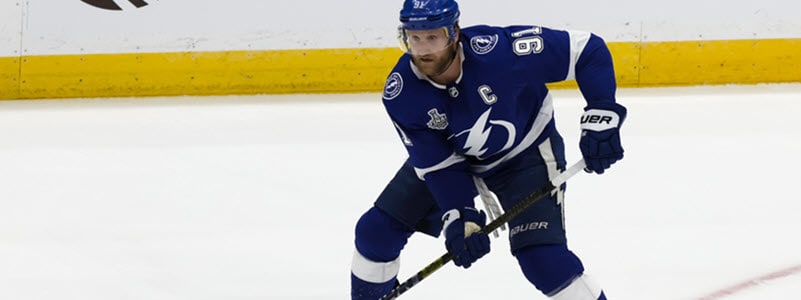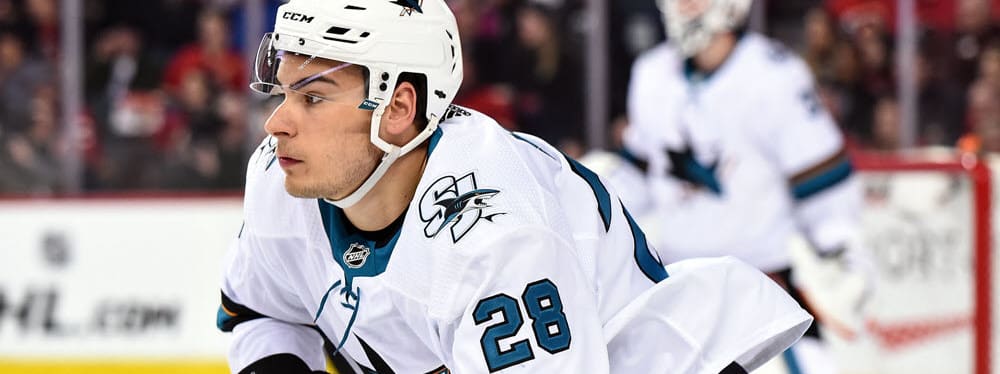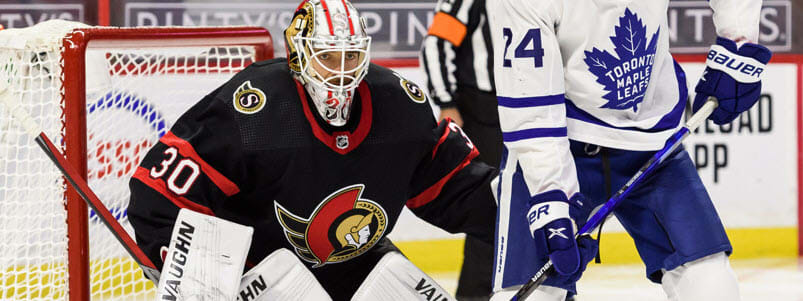Recent RotoWire Articles Featuring Nikita Zaitsev
See More
Since scoring 36 points as a rookie in 2016-17, Zaitsev hasn't surpassed the 20-point mark for six straight seasons. He dressed in just 46 games last year, scoring one goal and a career-low eight points in the process. After racking up at least 100 hits and 100 blocked shots in each of his first six NHL seasons, the 31-year-old blueliner logged 95 and 72, respectively, in 2022-23. Zaitsev should spend most of the 2023-24 campaign in a bottom-four role for the Blackhawks. Assuming he stays healthy, he should creep back into the 15-point range.
Zaitsev's usage was way down last season, as he averaged just 18:59 of ice time per game compared to a career-high 22:44 two seasons ago. Zaitsev managed 36 points in his 2016-17 rookie campaign with Toronto, but he hasn't posted more than 17 points in five years since. There was a time Zaitsev was a fringe option in league's which value hits and blocks, but even that has gone out the window with his reduced role. Look elsewhere on draft day.
The Senators are in the midst of a full-blown rebuild, but that didn't stop the club from handing Zaitsev 22:44 worth of ice time per game a season ago, the highest average total of the Russian's career. Zaitsev again responded with limited offensive production (four goals, 17 points in 55 games), although his hit (114) and block totals (110) were both impressive. Those are the lone two categories where Zaitsev is fantasy worthy, as his scoring numbers and dreadful plus-minus rating (minus-13) are both potential anchors for your virtual club. You can likely do better in your draft.
Zaitsev didn't enjoy a resurgence in his first year with the Senators, collecting 12 points, 108 hits and 121 blocked shots in 58 contests. He's still chasing the 36-point production he had as a 24-year-old rookie in 2016-17, but it's safe to say the Russian blueliner may never reach that mark again. With the Senators, he's expected to see top-four minutes again in 2020-21, so there will be chances for him to make a mark on the scoresheet. His primary goal will be defensive, however, so fantasy managers should only expect him to boost their rosters in non-scoring categories.
Zaitsev arrives in Ottawa with much promise, but considerable doubt. He moves from a top-four role with the Leafs into a top-pairing position for the Sens. The 27-year-old isn't a great shutdown guy, which is the role he was asked to play for the Leafs during the last two seasons. As a result of that ill-fitting assignment, Zaitsev's possession numbers took a downturn over the past two campaigns, and he was a liability at times. He did, however, put up 36 points in his rookie year when he saw time on the power play. Ottawa is the one place where he might be able to put the last two years behind him and pick up where he left off following that promising rookie year. Draft cautiously, though, because you'll need to be sure of his role before taking a late-round gamble.
Zaitsev's production with the Leafs plummeted in 2017-18 and that made his queasy defensive abilities feel like a season-long stomach flu. Zaitsev had the worst relative Corsi on the entire team. Furthermore, his 13 points in 60 games paled beside his 36-point rookie year. Zaitsev wasn't the only defensive liability on the Leafs squad, but he was the one who became the focus of negative fans. Just Google his name and you'll see that every other article and comment screams, ‘trade the bum!” Expect an offensive rebound for the beleaguered right-shooting defender, but it won't be huge, as Zaitsev isn't likely to get much power-play time. While his defense is unlikely to improve, he will be among the top four unless the team adds some serious strength on its blue line. We guess there's some value in that, if only in really deep formats.
Zaitsev was a revelation in 2016-17. His 36 points were the third best rookie scoring total among rearguards behind only Zach Werenski (47) and Brady Skjei (39), and he averaged a remarkable 22 minutes per game in the Buds' top four. Zaitsev's skating is strong, so he was often sent over the boards to deal with the opponent's best, so he was run down by the time the Leafs were done. Zaitsev headed back home to Russia this summer with a few goals in mind -- getting bigger and stronger, building on his skating and improving his shot. His new seven-year contract extension ($4.5 million per season) means he's a big part of the Leafs' future, and we expect a jump in his production this season, including on the power play. Best of all, Zaitsev's return-on-investment should be high given his expected lower draft position.
Zaitsev is a silky-smooth, two-time KHL All-Star who controls the game from the back end using great skating and excellent poise. He's not physical, but he's good with his stick, breaking up plays with body positioning and angling. Zaitsev has a good shot and can walk the line on the power play, and he's a coveted right shot. He has the potential to be a top-four defender in time if he can adjust to the physicality of playing on the smaller NHL ice. Zaitsev's KHL experience will give him a leg up on several guys in training camp and he might even start the season as the team's No. 4 defender. He will struggle at times – he just moved halfway around the world to one of North America's biggest cities, just to play hockey. But Zaitsev could be a 20-minute, 35-to-40 point defender in a few short years.







